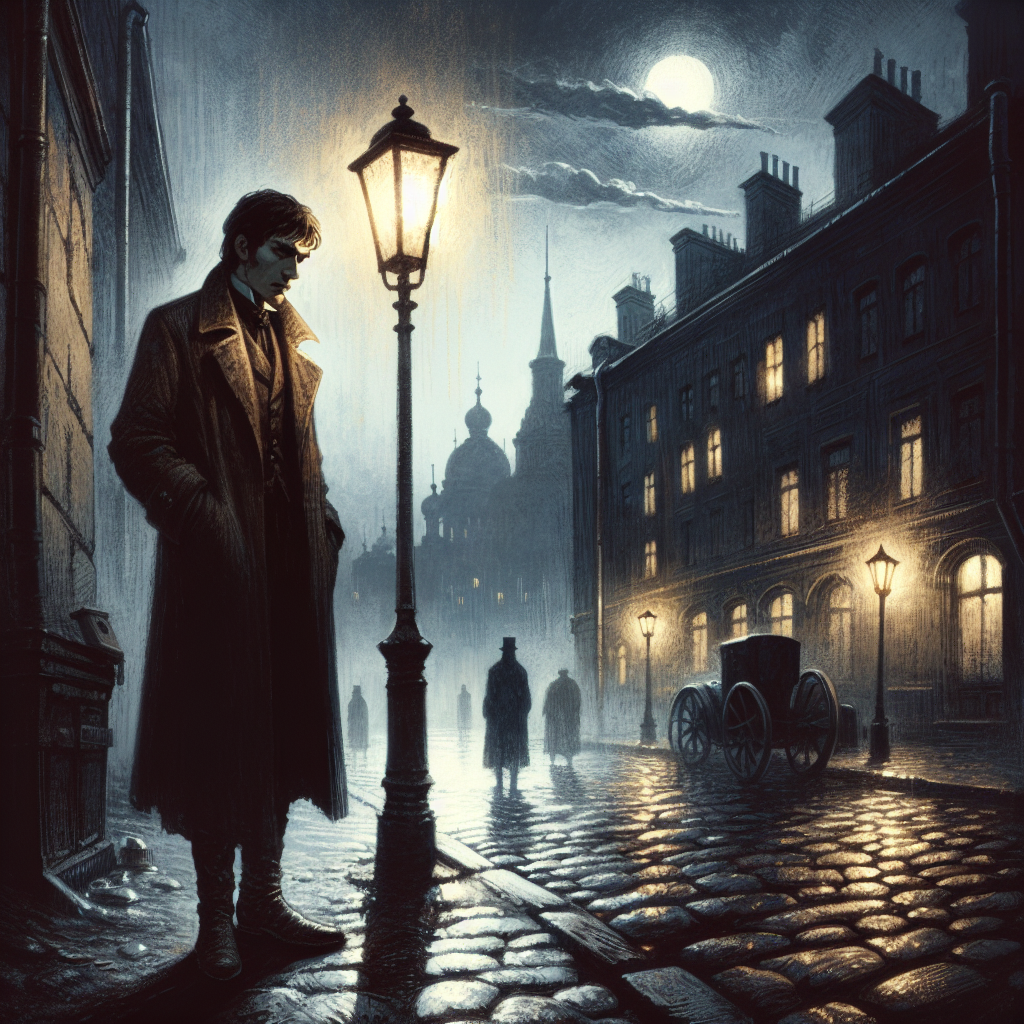
A 5-Minute Summary of Crime and Punishment by Fyodor Dostoevsky
“Crime and Punishment” by Fyodor Dostoevsky is a monumental work of Russian literature that delves deeply into the psychological turmoil and moral dilemmas of a young man named Rodion Raskolnikov. Set in 19th-century St. Petersburg, Russia, the novel explores themes of crime, redemption, and the duality of human nature through its complex characters and intricate plot.
The story begins with Raskolnikov, a destitute former student, living in squalor and grappling with a revolutionary theory he has conceived. He believes that certain extraordinary individuals possess the right to transgress moral boundaries if it results in a greater good. Inspired by this belief and his pressing financial woes, Raskolnikov plots to murder Alyona Ivanovna, a greedy and unscrupulous pawnbroker, rationalizing that her death would benefit society and alleviate his own impoverished state.
Raskolnikov carries out the murder but is swiftly overcome by guilt and paranoia. Although he manages to evade immediate suspicion, his mental state deteriorates rapidly, plagued by nightmares and hallucinations. Dostoevsky masterfully illustrates the inner conflict experienced by Raskolnikov, showcasing the psychological impacts of his crime. Despite his intellectual justifications, his conscience remains tormented.
The novel’s rich tapestry is further woven with compelling subplots and characters that shape Raskolnikov’s journey. Among them is Sonia Marmeladov, a virtuous and self-sacrificing young woman who turns to prostitution to support her family. Her unwavering faith and compassion play crucial roles in Raskolnikov’s eventual moral reckoning. Sonia’s story is intertwined with that of her father, Marmeladov, whose alcoholism and demise highlight the destructive nature of societal and personal failings.
The relentless and meticulous investigator, Porfiry Petrovich, adds another layer of tension to the narrative. Porfiry’s cat-and-mouse game with Raskolnikov emphasizes the psychological chess match between hunter and hunted. Through subtle and philosophical dialogues, Porfiry applies psychological pressure, gradually unearthing Raskolnikov’s guilt.
As the narrative unfolds, Raskolnikov’s interactions with his family, including his devoted mother and his sister, Dunya, introduce additional moral quandaries and emotional depth. Dunya’s resilience and moral fortitude contrast sharply with Raskolnikov’s existential angst, highlighting the spectrum of human character and integrity.
Ultimately, the climax of the novel sees Raskolnikov confessing his crime to Sonia, who implores him to seek redemption through confession and acceptance of punishment. Raskolnikov eventually turns himself in, culminating in his transportation to a Siberian labor camp. It is here, in the harsh confines of exile, that his path to redemption and spiritual awakening begins.
“Crime and Punishment” is not simply a tale of crime and its consequences; it is a profound exploration of human psychology and the complexities of morality. Dostoevsky’s work challenges readers to ponder the nature of justice, the struggle between good and evil, and the possibility of redemption. Through Raskolnikov’s journey, the novel prompts a reflection on the human condition, the burden of guilt, and the transformative power of love and repentance. As such, it remains a timeless and thought-provoking masterpiece that continues to resonate with audiences today.
